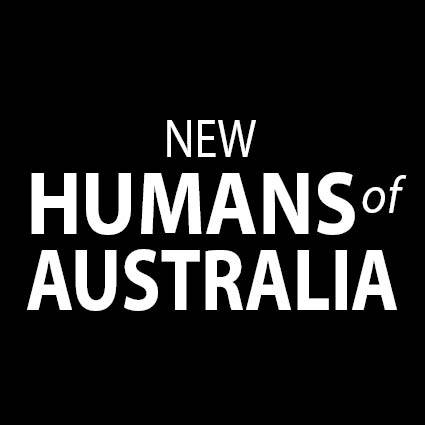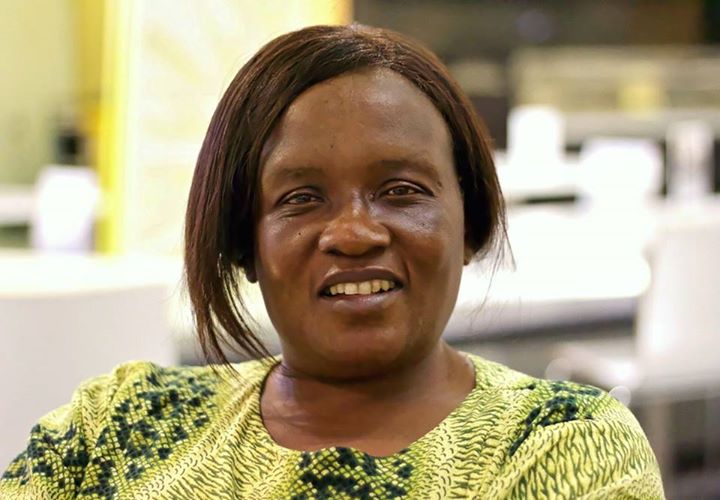When I was pregnant with my fifth child, my husband had a pancreas failure, and he passed away. After that, it was a huge struggle to take care of my children. We had fled Sudan because it was at war, and I only had one sister to support me in Kenya. She and her husband were not in a position to support me financially, although they were able to give me one room in their house, which I shared with my children. I had just finished a Diploma in Office Management, so I thought it would be easy to find work, but it took some time. Finally, 7 months later, I managed to find a job doing administrative work with a charitable organisation which operated at the front line of wars in Sudan, Kenya and Uganda. I was deployed in Sudan. While I was away, my sister took care of all my children, on top of the other four children she still had at home.
It was dangerous at the front line. We were often bombed. Each time, we went to the bunker, but when it finished, work resumed as normal. I remember one time a Russian made plane called the Antonov came and released many bombs, and it felt just like an earthquake. When I went outside, I saw flesh hanging from the trees. People who lived nearby had no time to pack anything. They just ran. Then, a week later, people start coming back. Some parents never found their children. Some children never found their parents. And many people died.
Eventually, when I was getting better pay, I was able to rent a house and employ a maid to take care of the children while my sister supervised. But still life was not always easy for me, because in our culture people sometimes turn their back on you when you become a widow, as they assume that you will burden them with your needs.
Then a family friend told me about someone she knew in Australia who was sponsoring widows to come and settle here, and I thought it would be a good opportunity for my children, as I knew I couldn’t afford the university fees for my eldest daughters.
When we came to Brisbane, they both started at uni straightaway, and the third and the fourth children went to high school, where they integrated well. But it was challenging for me to live in a country where the environment was different, the system was different, and the culture was different. Also, I didn’t have any family members here, so I had to start from scratch to look for friends. Sometimes I felt so lonely. When I first arrived, it was very hard because in Africa, when somebody rents a house in the neighbourhood, the neighbours will all come and welcome the new person, but that didn’t happen here!
Of course, I eventually met people. I got work as a cleaner, and later at a meat factory. Then I started an administrative traineeship. Later, I found a job as a Community Development worker working with African communities. I worked in that role for seven years and then I moved to another job at the Multicultural Development Association, where I’m currently working with the Bhutanese and Karen community. I’m learning a lot from them. When you live in a diverse and multicultural country, it’s good to know about other people’s culture.
I’m very proud of my children’s achievements. My first daughter graduated with a Bachelor of International Business, the second with a Bachelor of Human Services, the third with double degree in Nursing and Public Health, and my son graduated with Bachelor of Business Administration and Finance. On top of that I decided to go to uni as well. I did a Bachelor of Human Services. My father had always wanted me to go to university, but wasn’t able to afford it, so when I graduated, I felt happy because I was finally fulfilling his dream.
In my culture, when people look at you as a single mother and a widow, nobody seems to value you. As a result, many widows in my community feel inferior. But I tell them, ‘Having a man in your life will not solve your problems. If you trust in yourself, we’re in a country where you can get support if you want to improve your English and get an education, and you can have a career that can help you to support your children alone’.
The thing that I most appreciate about Australia is giving us an opportunity to study, because without that, I wouldn’t be where I am today.
Grace
South Sudan
Arrived 2006
If you would like to join the fabulous supporters of the New Humans of Australia project, please visit: www.patreon.com/newhumansofaustralia
#refugees #migrants #Australia #SouthSudan #storiesnotstereotypes #inspiration


New Humans of Australia helps people understand the reality of migration, and shares the amazing stories of those who come to our shores. If you would like to support us, please visit: http://www.patreon.com/newhumansofaustralia
What an amazing, inspiring story. Grace, good luck in everything you do ???? although it doesn’t sound like you need it, you sound determined, strong and fabulous.
These stories make me so happy, especially with all the anti-immigrant/anti-refugee sentiments so prevalent in Australia today.
Though it’s been 10 years, I still want to welcome you to Australia. I wish you and your family every success.
What life you’ve lived Grace, the experiences of some are so hard to grasp for others.
Congratulations on your amazing achievements and of your children’s.
You and your children make Australia a better place xxx
I wish all the people harping on and on about immigrants and refugees not “adapting to our way of life” (whatever “our way is) could read this and feel empathy. It must be SO HARD. These people need our patience and understanding while they navigate a very scary, lonely journey.
How blessed Australia is to have this wonderful woman and her family living here, determined and successful in the face if so much adversity.
Thanks for sharing, Grace. I hope you are now surrounded by caring and welcoming neighbours. I am sure you and your daughters will contribute much to our culture.
Australia is an amazing place and we should be more welcoming and willing to share it with people who want a better and safer life. We are all human and we should cherish our humanity! Grace, your strength and resilience is inspirational. It is people like you and your family that make Australia a better place. ❤️
Grace, Australia and our people are very honoured to have such an amazing, intelligent, hard working and loving mother and woman join us. I’m so pleased that you and your family have made such a wonderful life here. If you’re ever in Newcastle I would love to welcome you to my neighbourhood – hot chips at Bar Beach are on me!
What a wonderful story. Each and every one of Grace’s children will contribute something positive to Australian society and help smash those horrible stereotypes.
Grace, I knew it was you the moment I saw your photo! You are an inspirational woman, mother and grandmother. You are so intelligent and so kind hearted. It is a pleasure to know you and Australia is so fortunate to have you call it home. xoxo
Welcoming someone/ a family to the neighbourhood is a lovely idea, I’ll have to remember it next time someone moves into my street even if it’s with a welcome card 😀 Thank you for sharing Grace, Australia is blessed to have you & your family which will only make our country better 🙂
Congratulations Grace, what an amazing strong woman you are and a shining example to your children who have achieved so much already. May live in Australia always be welcoming and kind to you and your family. Peace and happiness xxx
As an Australian born single mother feeling a lot of what you describe, especially people ” turning their back on you as they assume you will burden them with your needs.” your strength is inspiring. I wish my children and I could meet people like you. I too will proudly list their achievements one day and say I was inspired by you. Thank you
There are so many wonderful people who have come to this country as refugees and despite incredible hardship ( and on occasion vile racism) navigate through all the challenges and loneliness and succeed. Good on this woman and her children – all now with university qualifications.
Wow – what an achievement- raising 5 children alone is hard enough but bring into the picture everything else including a new country and just.. wow. I hope you are incredibly proud of your achievements! What an amazing and strong woman you are. Xx
What a remarkable woman. Such determination. So pleased life here in Australia has turned out so well but only because Grace accepted the challenge and made it happen for her and her family.
Congratulations Grace. Yours is an inspiring story. Every person in a refugee camp has their own story too & they all deserve an opportunity to fulfill their dreams.
We have heaps at work who came from their countries qualified, and it is hard for them as they have to work full time and study to prove they are capable to work here.
I’ve become friends with a woman from Nigeria and I love swapping stories and laughing at the cultural differences
She is doing a bachelor in community services
Her placement hours are 8-6 pm
Plus has to pay to live
She does it
Unreal
I am very blessed to have met this wonderful lady many years ago. She has touched my life in more ways than I can express & I truly consider her family.
After all she has overcome, she still had place in her heart & home for my son, and welcomed him in and cared for him like her own. I will be forever grateful to her.
My heart is filled with pride for you Grace and am honoured to have shared in your graduation.
This country is so much more enriched to have you now call it your own.
Grace you are an inspiration!! I am so proud of you for doing the best by your children, they will be successful contributors to Australia’s employment landscape and bringing diversity, I truly hope you are proud of your achievements and what you had to overcome. You sound like a wonderful lady. God Bless You!!
Pitty our kids don’t get the same opportunities to go to uni, we have to pay the full whack.
Achieved more in 10 years here, than some do in a life time. Your story should be shared at high schools to help motivate our youth who don’t know where to start with life.
Congratulations Grace. I work with migrants also and sometimes i think how did they ever do it. You have come such a long way for your self and your children. Im sure your father would have been very proud.
Grace, We are blessed to have you and your children call Australia home. Thank you for the encouragement you daily give others through your skilled community development work and your friendship.